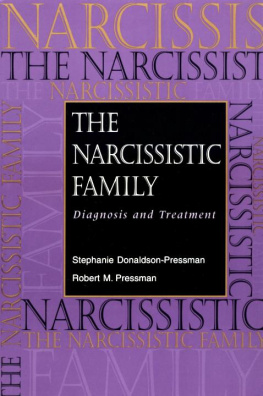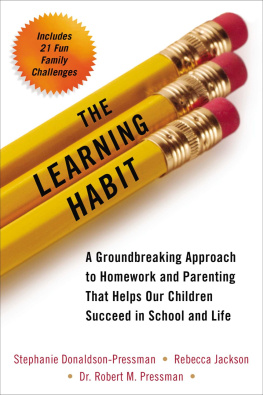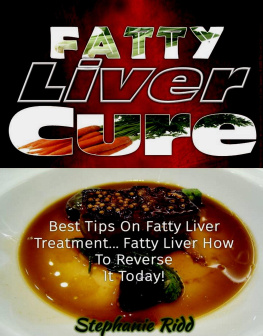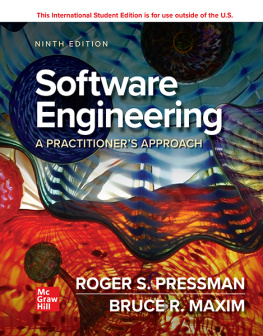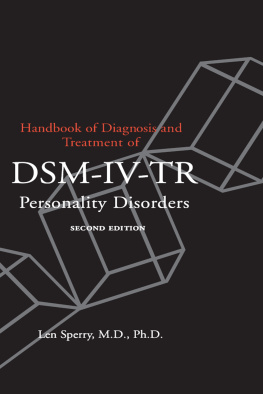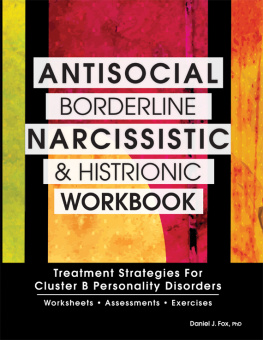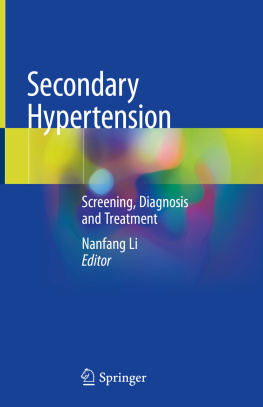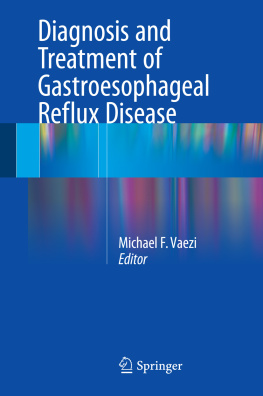Stephanie Donaldson-Pressman - The Narcissistic Family: Diagnosis and Treatment
Here you can read online Stephanie Donaldson-Pressman - The Narcissistic Family: Diagnosis and Treatment full text of the book (entire story) in english for free. Download pdf and epub, get meaning, cover and reviews about this ebook. year: 2009, genre: Home and family. Description of the work, (preface) as well as reviews are available. Best literature library LitArk.com created for fans of good reading and offers a wide selection of genres:
Romance novel
Science fiction
Adventure
Detective
Science
History
Home and family
Prose
Art
Politics
Computer
Non-fiction
Religion
Business
Children
Humor
Choose a favorite category and find really read worthwhile books. Enjoy immersion in the world of imagination, feel the emotions of the characters or learn something new for yourself, make an fascinating discovery.
- Book:The Narcissistic Family: Diagnosis and Treatment
- Author:
- Genre:
- Year:2009
- Rating:3 / 5
- Favourites:Add to favourites
- Your mark:
- 60
- 1
- 2
- 3
- 4
- 5
The Narcissistic Family: Diagnosis and Treatment: summary, description and annotation
We offer to read an annotation, description, summary or preface (depends on what the author of the book "The Narcissistic Family: Diagnosis and Treatment" wrote himself). If you haven't found the necessary information about the book — write in the comments, we will try to find it.
The Narcissistic Family: Diagnosis and Treatment — read online for free the complete book (whole text) full work
Below is the text of the book, divided by pages. System saving the place of the last page read, allows you to conveniently read the book "The Narcissistic Family: Diagnosis and Treatment" online for free, without having to search again every time where you left off. Put a bookmark, and you can go to the page where you finished reading at any time.
Font size:
Interval:
Bookmark:

The Narcissistic Family
The Narcissistic
Family

Diagnosis and Treatment
Stephanie Donaldson-Pressman
Robert M. Pressman




For Sarah, Rebecca, and Jonathanwho are well loved
S.D.P.
For Henry Gil fond-uncle, author, mentor, and keeper of the light.
R.M.P.
Contents

vii
Part I
The Narcissistic Family Model
Part II
Therapy with Adults Raised in Narcissistic Families
Acknowledgments

A number of individuals were both supportive and helpful in the production of this book. Susan F. Berman of the North Kingstown Library and Kenneth T. Morse of the University of Rhode Island Library were extremely generous in giving their time to locating source material. Nancy Lieberman was helpful in a thousand ways during the process, not the least of which was in keeping our offices running while we were involved with finalizing the manuscript. Carol Mayhew, in charge of production for Lexington/Macmillan, was knowledgeable, organized, and kind-all of which were much appreciated. We owe special thanks to Chris Kelly, whose intelligent and respectful copy editing was a delight as well as an education. Many of our patients were involved in both giving us feedback as the theory and techniques were in development, as well as in generously allowing us to use portions of their personal stories in the book; we are grateful. Our deepest appreciation, however, is for our editor and friend, Margaret Zusky, whose belief in the concept of the narcissistic family model made the book happen. Her comments and suggestions were invariably insightful, and her support was unwavering. Thank you, Margaret.
Introduction

The Focus
The Narcissistic Family is a book written by therapists for therapists. It is for those brave people who on a daily basis, engage patients in that mysterious, private, and sometimes beautiful struggle we call therapy.
The authors are two therapists who have worked in the trenches-the moderately comfortable, moderately soundproof rooms where hopeful patients and hopeful therapists are placed together for about an hour at a time. Like many therapists, we have struggled with patients who have been refractory to treatment. We look for books, workshops, and words of wisdom from our colleagues, with hopes of finding the answers as to why the impasses exist and how to overcome them.
The most helpful information for us is inevitably action oriented. The reasons and the theories are fine, but we want to know how to apply them-what to do behind those closed doors, how to help the client. This book puts forth a new viewpoint in working with a puzzling and difficult patient population. It does not give a new diagnostic category. However, it does suggest a common thread that ties together individuals who, depending on the day they are inter viewed, might otherwise receive a diagnosis of a variety of personality disorders (borderline, overanxious, narcissistic, paranoid, and dependent) or clinical syndromes and disorders (multiple personality, dysthymic, and posttraumatic stress). Moreover, the narcissistic family model provides a framework for therapists within which they can help individuals who share this common thread.
A Broader View
Links between the experiences of childhood and their sometimes permanent effect on adult behavior have long fascinated observers of human behavior. Of particular interest has been the impact of one's family of origin on personal development. In the last decade, the concept of the "adult child of alcoholism" (ACOA) has helped us to understand the nearly predictable effects of being raised in an alcoholic family system. As therapists, many of us have worked for years with individuals suffering from what appeared to be immutable low self-esteem, inability to sustain intimacy, and/or blocked paths to self-understanding. The concept of the ACOA opened a new door to the understanding of such problems. Therapist/authors such as Woititz, Black, Gil, and Bradshaw (among others) have drawn vivid images of how children's personalities are molded in a special way by alcoholic families.' The literature produced on this topic has cleared a much wider path of recovery for children of alcoholic parents. It has also increased the sensitivity of therapists to the impact of alcoholic rearing on personality development. At one time, therapists seldom asked directly about the drinking patterns of the patient's parents; now such questions are routinely explored in initial assessment interviews.
Of late, a new body of literature has been created: books written by abuse survivors both to focus attention on the devastation caused by physical and sexual abuse and to give validation and guidance to other survivors, whether male or female. Laura Bass and Susan Davis have articulated the trauma of sexual abuse, as well as techniques helpful for recovery, in a landmark text, The Courage to Heal, while Stephen Grubman-Black was among the first to attack the myth of male invulnerability to sexual abuse in a poignant narrative, Broken Boys/Mending Men.' In fact, many bookstores now offer more self-help books for various types of survivors than they do for dieters, heretofore a staple of the paperback publishing industry.
Common Links
In our work at the Rhode Island Psychological Center, along with the benefits of working with the ACOA and abuse models came a puzzle. What about individuals who had the traits of an ACOA but whose parents did not drink, or rape, or beat? True, there was dysfunction in their families, but the common thread was elusive. Among adult children of dysfunctional (but nonalcoholic and nonabusive) families, we found a body of personality traits previously identified with the ACOA model. These included chronic depression, indecisiveness, and lack of self-confidence.
Within this population we found common behavioral traits as well: a chronic need to please; an inability to identify feelings, wants, and needs; and a need for constant validation. This group of patients felt that the bad things that happened to them were well deserved, while the good things that happened were probably mistakes or accidents. They had difficulty being assertive, privately feeling a pervasive sense of rage that they feared might surface. They felt like paper tigers-often very angry, but easily beaten down. Their interpersonal relationships were characterized by distrust and suspicion (bordering on paranoia), interspersed with often disastrous episodes of total and injudicious trusting and self-disclosure. They were chronically dissatisfied, but were fearful of being perceived as whiners or complainers if they expressed their true feelings. Many could hold their anger in for extremely long periods of time, then become explosive over relatively insignificant matters. They had a sense of emptiness and dissatisfaction with their achievements; this was found even among individuals who externally may have been viewed as very successful. The list of people included professionals who were obsessively involved in their enterprises, but were unable to achieve at a level at which they found satisfaction. In relationships, these individuals frequently found themselves in repeated dead-end situations.
Next pageFont size:
Interval:
Bookmark:
Similar books «The Narcissistic Family: Diagnosis and Treatment»
Look at similar books to The Narcissistic Family: Diagnosis and Treatment. We have selected literature similar in name and meaning in the hope of providing readers with more options to find new, interesting, not yet read works.
Discussion, reviews of the book The Narcissistic Family: Diagnosis and Treatment and just readers' own opinions. Leave your comments, write what you think about the work, its meaning or the main characters. Specify what exactly you liked and what you didn't like, and why you think so.

